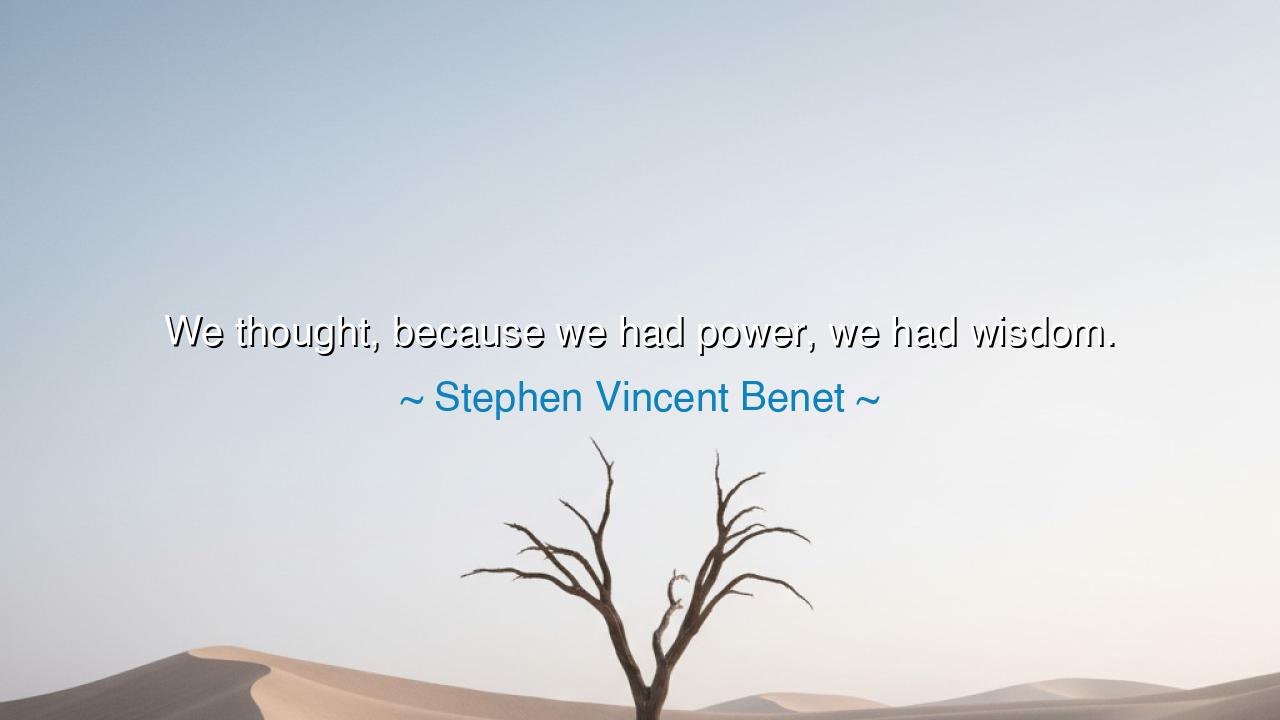
We thought, because we had power, we had wisdom.






Stephen Vincent Benét, poet of America’s conscience, spoke with the sorrow of ages when he wrote: “We thought, because we had power, we had wisdom.” These words are not triumph but lament, a reminder of humanity’s ancient folly: to mistake strength for truth, and might for understanding. Power dazzles, it intoxicates, it convinces men that their hands shape destiny. But wisdom is another matter, born not of force, but of humility, reflection, and reverence for the eternal laws.
The heart of this teaching is simple: power without wisdom leads to ruin. A nation may build weapons that shake the earth, but if it lacks the wisdom to use them rightly, those weapons will become curses. A man may rise to command armies, yet if he mistakes command for wisdom, he will lead his people into disaster. Benét, writing in the shadow of modern war and upheaval, laid bare the error of his age—and of every age—that has ever worshiped strength without seeking understanding.
History thunders with examples. Consider the might of Napoleon Bonaparte, who believed his genius in battle proved his right to rule the world. He had power enough to humble kings and redraw maps, yet lacked the wisdom to temper ambition with restraint. His empire, built on conquest, collapsed into exile and ruin, a monument to the folly of confusing power with wisdom.
So too in the twentieth century, when nations forged the fire of the atomic bomb, they mistook their mastery of destruction for mastery of destiny. In that moment, humanity stood at the edge of annihilation, learning painfully that power is not wisdom. The bomb could level cities, but it could not teach peace. Only through humility, dialogue, and restraint could the world step back from the abyss.
O children of tomorrow, let this lesson pierce your hearts: never believe that strength alone makes you wise. Power may be the hand, but wisdom must be the guide, or the hand will destroy what it was meant to protect. Seek wisdom before you seek might, for wisdom governs power, but power without wisdom is a fire that consumes its master. Benét’s words echo like a warning bell through the corridors of time: do not mistake force for truth, nor dominion for destiny.






AAdministratorAdministrator
Welcome, honored guests. Please leave a comment, we will respond soon